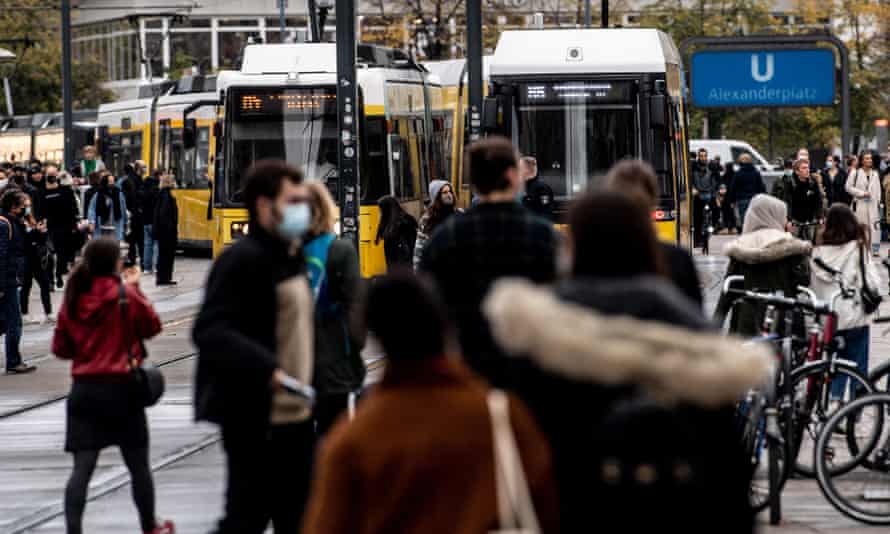Analysis: left-of-centre parties struggle to cut through as survey shows ‘everyone thinks they are middle class’

It is a country with levels of wealth inequality more similar to the US than France, and one where the richest 10% of the population already owned two-thirds of the national wealth before the pandemic further widened the gap.
Yet the inequality of German society and how to fix it is likely to play a minor role in the race to September elections this year, with those parties expected to offer solutions – the centre-left Social Democratic party (SPD) and the leftwing Die Linke – struggling in the polls.
A new study offers answers why, showing how a central perception fallacy among the German electorate on questions of income and wealth creates a major obstacle for the traditional left.
The survey, carried out by researchers at the University of Konstanz and the Berlin-based thinktank Das Progressive Zentrum, paints a picture of a society in which “everyone thinks they are middle class”, and those on the lower rungs of the ladder overestimate their average income while those earning more than most don’t recognise themselves as outliers.
Among 6,000 people questioned for the Covid-19 and Inequality survey, the poorest 10% located themselves closer to the third of 10 income brackets, while those in the top 10% thought their income to be below the seventh rung of the ladder.
As a result, the study argues, German debates on inequality tend to remain too abstract to cut through to the average voter, even if people believe there to be a problem with social inequality in general.
“Researchers come across this paradox time and again,” said Marius Busemeyer, one of the study’s authors. “German voters are pessimistic in the abstract, but optimists when it comes to their personal financial situation.

Leave A Comment